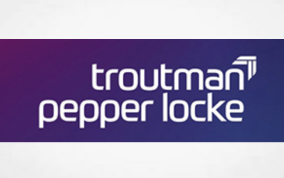Troutman Pepper Locke
Last year, we wrote about the former Missouri governor’s efforts to curb the availability of intoxicating hemp products to Missouri consumers by executive order. There are now several proposed bills in the Missouri legislature that seek to regulate hemp-derived consumable products in the state, a few of which we summarize below. In general, the proposed legislation addresses issues related to youth access, licensing, taxation, advertising and marketing, testing, and labeling. This type of proposed legislation is worth monitoring in Missouri, and other states, as states take more aggressive action to prohibit or regulate the availability of such products to consumers in the absence of a coherent, federal regulatory framework.
The Missouri Hemp Consumer Protection Act
This bill was introduced by Representative Ben Baker and proposes to regulate the sale, distribution, and consumption of hemp-derived consumable products in Missouri. Key provisions include:
- Age Restrictions: Prohibits individuals under 21 from selling, distributing, or purchasing hemp-derived consumables, with exceptions for supervised consumption by parents or legal guardians and veterans aged 18 or older.
- Licensing and Fees: Requires manufacturers, distributors, and retailers to obtain licenses from the Division of Alcohol and Tobacco Control (DATC), with fees up to $250 for manufacturers/distributors and $100 for retailers. Licenses are valid for one year and renewable annually.
- Testing and Labeling: Mandates full-panel testing of hemp-derived consumables to be overseen by the Department of Health and Senior Services (DHHS). Labels must include specific information in at least three-point font.
- Retail and Food Service Regulations: Retail and food service establishments must be licensed to sell hemp-derived consumable products, which cannot be sold at temporary events without a permit. Employees under 21 can handle these products only under supervision.
- Advertising and Marketing: The DATC will regulate advertising and promotion, ensuring regulations are not stricter than those for alcohol sales.
- Prohibited Activities: Prohibits operating vehicles or performing tasks that would constitute negligence while impaired by hemp-derived consumable products. Employers are not required to accommodate use in the workplace.
- Exemptions and Special Provisions: Safe harbor products and manufacturers are exempt from some provisions. Registered nurses can administer hemp-derived consumable products to students under specific conditions.
- Enforcement and Penalties: Violations of the act can result in fines and misdemeanors, with DATC authorized to conduct audits and inspections.
- Taxation: Imposes a 2% excise tax on retail sales of hemp-derived consumable products starting January 1, 2026. Revenue will fund veterans’ programs, drug abuse prevention and education programs, and first responder programs.
- Age Restrictions: Prohibits the sale or distribution of hemp-derived consumable products to individuals under 21 and restricts their sale in public settings. Retailers must keep these products in restricted areas inaccessible to those under 21. Violations will be penalized and enforced by the DATC.
- Licensing: Requires businesses dealing in hemp-derived consumable products to obtain a license from the DATC. Retail licenses are location-specific, while manufacturer and distributor licenses are not. New retail establishments cannot be within a certain proximity to schools, though existing ones are exempt.
- Hemp Business Fund: Establishes a fund where all fees from licensing will be deposited, to be used solely for purposes outlined in the bill.
- Testing: The DHHS will oversee testing of final products. Manufacturers must ensure products are tested before distribution. Products must meet specific standards, and those failing will not be sold. Each tested product will receive a Certificate of Analysis (COA).
- Labeling: Labels must contain specific information and not appeal to children.
- Serving Size and Packaging: Sets requirements for THC quantity, packaging, and serving size for various hemp-derived consumable products. Violations can lead to seizure and forfeiture.
- Hemp-Based Consumable Product Related Offenses: Specifies penalties for operating vehicles under the influence of hemp-derived products or with open containers of such products.
- Production, Manufacturing, and Distribution: Allows exclusive territories for distribution of hemp-derived beverage products. Entities cannot hold multiple types of licenses. Manufacturers selling more than 1,000 gallons per year must distribute through distributors, not directly to retailers or residents.
- Registration: Requires all hemp-derived consumable products to be registered with the DATC, including a COA.
- Inspections: The DATC will conduct random inspections to ensure compliance.
- On-Premises Sales and Consumption: Establishments must be licensed to sell hemp-derived beverage products, which can only be sold to individuals 21 or over. Specific rules apply to on-site consumption and sampling.
- Franchise, Distributor, and Manufacturer Relationship: Prohibits discrimination between distributors by manufacturers and requires good cause for terminating franchises.
- School Property: By July 1, 2026, school districts must adopt policies prohibiting the use of hemp-derived consumable products on school property or at school events, with exceptions for licensed health care professionals administering products to students under certain conditions.
- Licensing: Entities can hold both a manufacturer and retailer license but can only retail on-site. No entity can hold more than one type of hemp beverage license or have financial interests in other types. License holders cannot hold a cannabis business license.
- Sales and Distribution: Manufacturers can sell to wholesalers but not directly to retailers. Wholesalers can sell to retailers. No wholesaler or retailer can distribute or sell products made outside the U.S.
- Regulations and Standards: Specifies qualifications, fees, and application processes for licenses. Outlines health and safety standards, allowed/prohibited ingredients, and packaging/labeling requirements. Violations of health and safety standards result in fines: $1,000 for the first offense, $5,000 for the second, and $25,000 for the third.
- Age Restrictions and Marketing: Prohibits sales to individuals under 21. Sellers must be at least 21 years old. Prohibits marketing that appeals to those under 21.
- Taxation: The DATC will set a retail tax rate between 6% and 8%.


